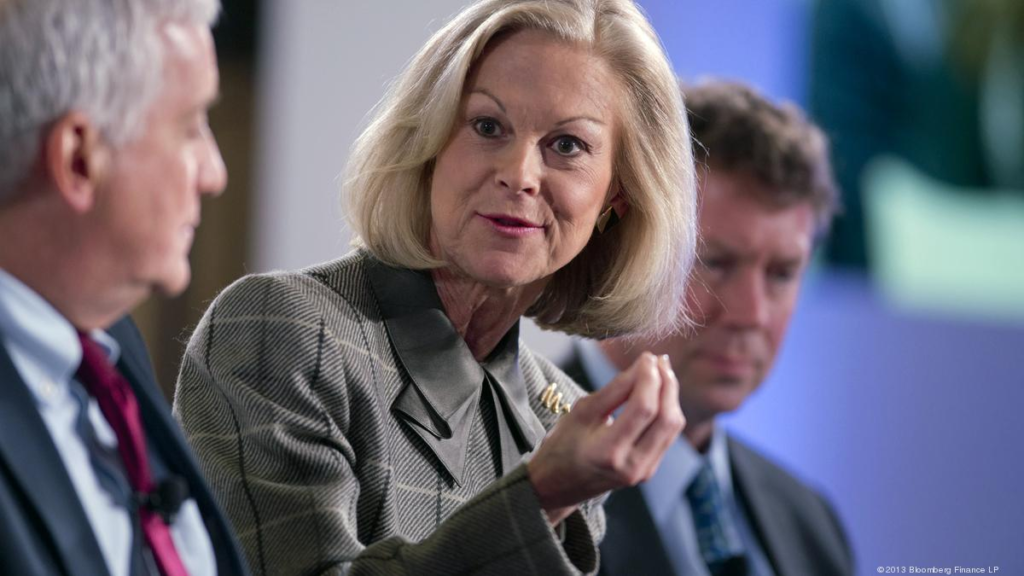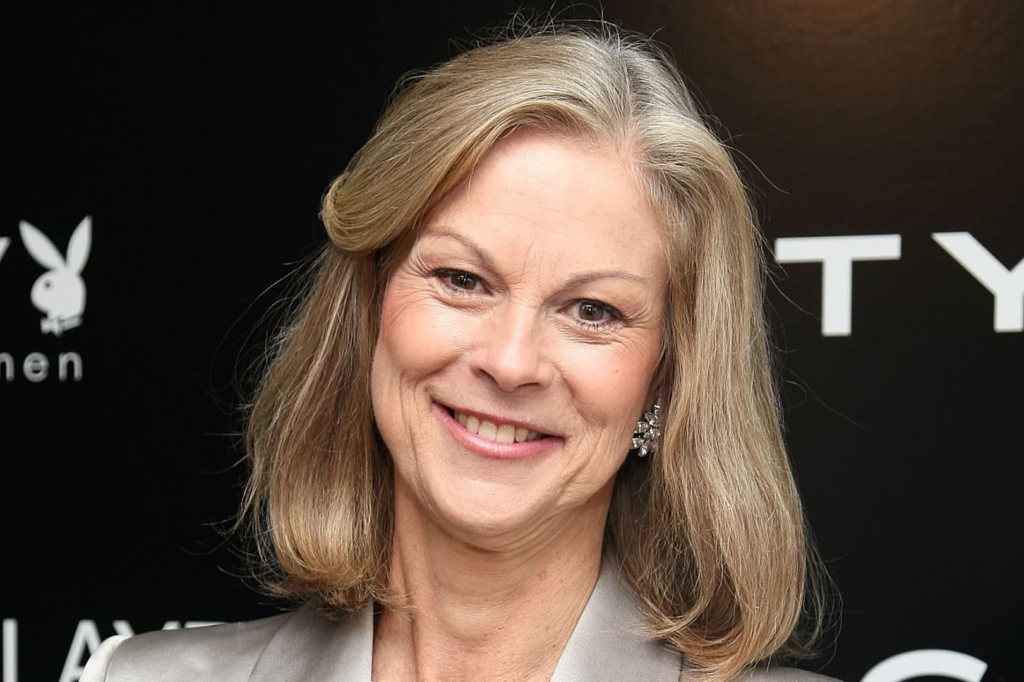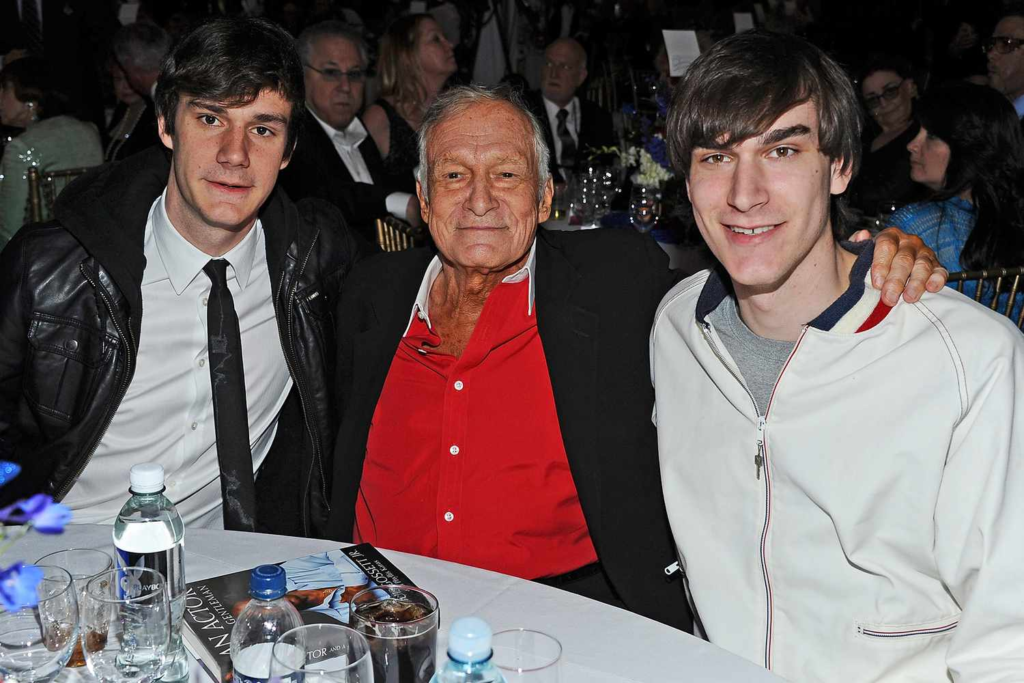Christie Hefner’s legacy endures in the commercial and charity domains. As the former chair and CEO of Playboy Enterprises, she established the bar for women in a field where women are occasionally attacked for the way they are depicted by steering the company toward innovation and social responsibility. She was in charge of the development of new policies for diversity and moral corporate conduct, as well as Playboy’s global expansion.
Hefner has continuously backed women’s rights, LGBTQ+ equality, and other social issues in addition to her career achievements. For her commitment to these causes, she received the Human Rights Campaign’s Equality Award in 2001. Christie Hefner is an initiator in both the business and charitable sectors.
This article describes comprehensive insights into Christie Hefner‘s life, work, and enduring impact.
Childhood and Schooling
Born on November 8, 1952, in Wilmette, Illinois, she was a little child when his father started Playboy magazine in 1953 and gained notoriety by the time. But, Christie grew up with her mother instead of at the lavish Playboy Mansion because her parents divorced when she was at the age of five.
Her academic talent showed itself early and would be a trait of her career life. She left New Trier High School in Winnetka, Illinois, and got admission to Brandeis University. Then, she gained her summa cum laude degree in English and American literature from this same college in 1974. Her values were greatly influenced by the liberal atmosphere of the institution, which reinforced her devotion to women’s rights, social justice, and equality.
Getting Involved with Playboy Enterprises
Christie Hefner took a brief interest in journalism after graduating from Brandeis. Yet, her summer employment at Playboy Enterprises in 1975 ignited her curiosity about the commercial side of the media. She began her career at Playboy as a junior executive, where she rapidly established her abilities and showed a deep comprehension of the business and editorial facets of the organization.
During a significant transformation at Playboy, she started working at the company. With increased pressure from other adult magazines and the rise of video pornography, Playboy Enterprises became less profitable in the late 1970s and early 1980s.
Only then did the company begin to realize the importance of innovation and diversification; Christie Hefner began to take a more active interest in determining the strategic direction for the firm.In 1982, at age 29, Christie Hefner broke new ground when she became the first president of Playboy Enterprises and was named the youngest woman heading any major publicly traded company.
She took up her new role as CEO in 1985 and led the company for more than two decades. The move was something of a breakthrough for her, but the appointment also represented a watershed in the male-oriented world of business as a whole, shaking up the game for Playboy Enterprises and orchestrating a first for women in corporate America.
Acquiring the Position of CEO and Playboy Enterprises’ Transition
After working for Playboy Enterprises since 1982, Christie Hefner was named President and CEO in 1988, a period of six years. The latter appointment was a significant step because she is considered one of the youngest American women ever to head a company that is seated on the list for stock trading.
In her stead, she went on to direct one of the most sweeping corporate changes in the history of the Playboy company as she changed the equation for Playboy while also directing the change in Oriental culture and Western people’s reception of them.
Her initial priorities were increasing profitability and optimizing Playboy’s business processes. She minimized costs by divesting businesses that deviated from the business of running the brand, such as Playboy nightclubs and casinos, and focused business initiatives on digital media, entertainment, and the license of the brand.
Playboy.com, widely seen as one of the earliest to enter the reeling platform of online magazines, was launched in 1994. This was due to Hefner’s well-targeted strategic foresight, thus offering Playboy a considerable first-mover advantage on the web.
Under Hefner’s leadership, Playboy expanded into international markets and employed licensing agreements to broaden its revenue sources. The company collaborated with well-known stores throughout the world and licensed its recognizable bunny emblem for various products, including apparel and accessories. Through these efforts, Playboy transformed into a lifestyle brand and began making substantial profits outside the magazine industry.
Hefner oversaw initiatives to change the brand’s image to one that was more progressive and inclusive. In addition to the magazine’s customary emphasis on glamour, she backed initiatives that attempted to update Playboy’s content by encouraging more complex editorial pieces and covering subjects like politics, culture, and the arts. This change allowed Playboy to maintain its viability in a cutthroat and dynamic industry while regaining its position as a cultural influencer.

A Feminist CEO
Given her feminist views and her position as head of a corporation that was regularly criticized for the way it portrayed women, her tenure at Playboy was usually viewed as incongruous. Christie Hefner, though, did not perceive any conflict between her feminism and her employment at Playboy. She felt that the company’s backing of progressive issues and its stance on sexual freedom were in line with her personal beliefs.
Moreover, Hefner has continuously supported women’s rights throughout her career. She has battled for women’s rights to fair compensation, employment, and the ability to have an abortion by using her well-established platform. She proved her dedicated devotion to women’s rights by running campaigns for several groups, including the Ms. Foundation and the Women’s Media Center for Women.
Hefner took a practical stance towards feminism. She was aware that Playboy was a nuanced brand with a history that could be beneficial and detrimental. But, she also thought questioning social conventions was important and that discourse had great power. Gloria Steinem and Betty Friedan were among the well-known feminists Christie Hefner published writings and interviews with through Playboy Enterprises. Playboy Enterprises adopted a more considered and intellectual approach.
Handling Disputes and Rebuttals
Being a first supervisor at Playboy Enterprises, Christie Hefner has been in the public eye quite a lot. Given that the company is associated with adult entertainment and mainly a controversial portrayal of women, she has become a target for a lot of criticism from feminists and women’s rights activists. Among these was Hefner, who worked with a company viewed by some to advance the objectification of women.
Nonetheless, Hefner constantly justified her employment at Playboy by emphasizing the business’s role in furthering progressive values. She brought out the long history of Playboy magazine’s support of civil rights, free speech, and sexual liberation. Playboy featured articles by thinkers and well-known writers like Norman Mailer and James Baldwin to get a wide range of liberal perspectives. Hefner frequently maintained that her dedication to social justice was congruent with Playboy’s editorial content and the company’s position on civil freedoms.
Hefner also made an effort to encourage inclusiveness and diversity throughout the organization. She advocated for the promotion of more women to senior positions. In addition to encouraging women to seek leadership roles, Christie Hefner was a vocal person of LGBTQ rights. In 2001, she received the Human Rights Campaign’s Equality Award in recognition of her efforts to promote equality and combat bias.
Leaving the Playboy Enterprise
After highly successful years of her career, Christie Hefner announced in 2008 that she was retiring from her position as President and CEO of Playboy Enterprises. She left the organization because she wanted to focus on her philanthropic work and thought that new leadership would solve the problems caused by the media shift.
During her 20 years in charge, Hefner successfully transformed Playboy Enterprises into a multi-platform brand and expanded its presence abroad. Her efforts to diversify the company’s income sources and embrace digital media enabled it to weather difficult times and continue turning a profit.
She was one of the few women who had run a large publicly traded firm in the male-dominated entertainment industry. Thus, her resignation was also a historic occasion for women in leadership. Her accomplishments disproved gender norms in business leadership and served as a role model for upcoming generations of female CEOs.

Charities and Advocacy
After retiring from Playboy Enterprises, Christie Hefner preferred spending her time and effort supporting charitable work, especially in education, social justice, and healthcare. She was a strong activist for the First Amendment, equality between genders, and the rights of unborn children.
She was on the boards of the Democratic Alliance, the Committee to Protect Journalists, and the Centre for American Progress. Hefner’s support of progressive organizations is a reflection of her lifelong enthusiasm for social change, which dates back to her time as a Brandeis University student.
Her focus on public health is one of her charity endeavors that stands out the most. In 2012, she was appointed executive chairman of the company Canyon Ranch Enterprises, which encourages healthy living. Hefner’s commitment to health promotion is demonstrated by her support of improved services for individuals with disabilities at the Shirley Ryan AbilityLab, previously the Rehabilitation Institute of Chicago.
Furthermore, Hefner guides many women in the business world and fervently backs women in leadership positions. She has frequently argued for laws that support equal chances for women in the workplace and spoken out about the value of diversity in leadership positions.
Legacy and Consequences
Christie Hefner left behind a record of inventiveness, innovative leadership, and unwavering dedication to social development. Under her guidance, Playboy Enterprises experienced a major influence as the company navigated challenges, adapted to changing societal norms, and extended its reach globally.
As the CEO of Playboy, Hefner led a successful business that upheld forward-thinking values such as freedom of expression, equal rights, and gender parity. Her campaigning and generosity have had a lasting impression, in addition to her work with Playboy. She will be a well-known figure in progressive circles, despite having inspired many with her efforts for women’s rights, health care, and education.
Her career is a piece of evidence that a prosperous businesswoman can be an ardent activist striving to establish greater equity in society.Christie Hefner bucked expectations in a lot of ways.
As a woman in charge of a business that dealt with contentious issues, she showed that it was feasible to update the Playboy brand while maintaining a commitment to social justice and civil freedoms. Her career demonstrates how a strong commitment to positive change combined with good leadership can completely transform a company’s culture.

Summing Up!
The remarkable achievements of Christie Hefner demonstrate how well a woman was able to combine activism, philanthropy, and corporate leadership throughout her career. She proved her commercial acumen and flexibility in leading Playboy Enterprises as CEO, and her charity endeavors revealed her real desire to change the world for the better. Future generations of female leaders and social activists who wish to improve society and business are continually motivated by Hefner’s legacy.


